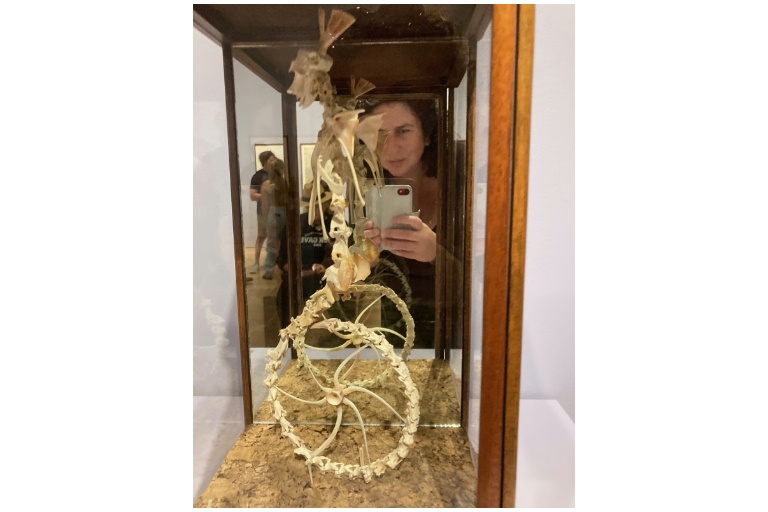
Rebekah Sheldon is the Director of Cultural Studies, Associate Professor of English and team leader for the Esoteric Futures research group at Indiana University Bloomington. A scholar of contemporary science fiction, gender and sexuality, and feminist philosophy, her research interests are in speculative materialisms that scale above and below the human: the invisible world of nonhuman agencies like swarms of chemicals, the transmission of affect, and the esoteric and supernatural. Her first book, The Child to Come: Life After the Human Catastrophe (University of Minnesota Press 2016), considered how the child in postapocalyptic fiction and film both contains but also gives expression to the agency of ecological forces under conditions of the Anthropocene. She is currently at work on two projects in magic, esotericism, and the occult: a co-edited collection, Esoteric Inhumanisms, and a monograph, We Sorcerers: Magic as Method.
My current book project, We Sorcerers: Magic as Method, reads the marginalized presence of magic and the supernatural in poststructuralist and new materialist philosophy to argue for scholarship as occult practice. In chapters on deconstruction and post-structuralism, queer performativity, feminist new materialism, speculative realism, and decolonial and Black feminist thought, I argue that criticism has long been animated by an occult understanding of words as actions. While this understanding was easily disavowed in poststructuralism, in the turn to affect, matter, and the nonhuman, the presence of magic has come closer to the surface of the work. This project bridges the two critical movements to show the connections between meaning and mattering.
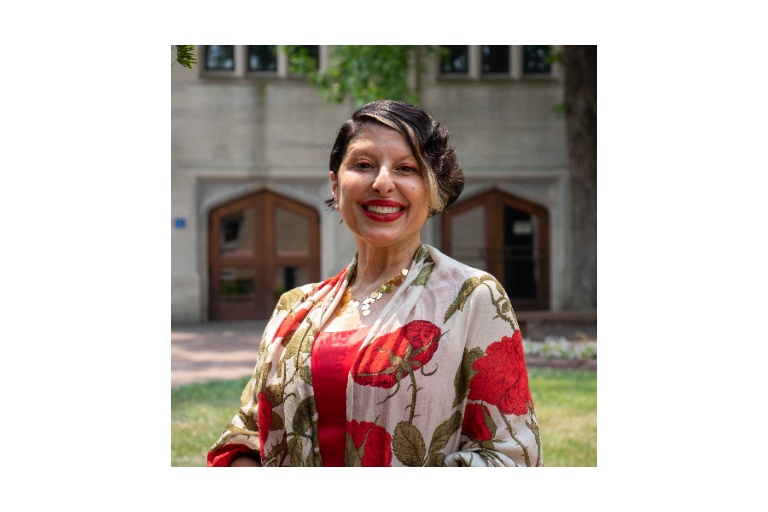
Solimar Otero is the Director of the Latino Studies Program, and Professor of Folklore and Gender Studies at Indiana University, Bloomington. She is also the editor of the Journal of Folklore Research. Her research centers on gender, sexuality, Afro-Caribbean spirituality, and Yoruba traditional religion in folklore, performance, literature, and ethnography. She is the author of Archives of Conjure: Stories of the Dead in Afrolatinx Cultures (Columbia University Press 2020), which won the 2021 Albert J. Raboteau Prize for the Best Book in Africana Religions. She is also the author of Afro-Cuban Diasporas in the Atlantic World, (University of Rochester Press, 2010); co-editor of Yemoja: Gender, Sexuality, and Creativity in Latina/o and Afro-Atlantic Diasporas (SUNY Press 2013); and co-editor of Theorizing Folklore from the Margins: Critical and Ethical Approaches (Indiana University Press, 2021). Dr. Otero is a Folklore Fellow of the American Folklore Society. She has also received a Ruth Landes Memorial Research Fund grant, a fellowship at the Harvard Divinity School’s Women’s Studies in Religion Program, and a Fulbright award.
PROJECT ABSTRACT:
Africana divinities activate presence, materiality, and spatiality through the dead. Defiant Presences: The Inspired Worlding of Africana Saints, Divinities, and Ancestors is a book project that situates mediums, entities, and saints within historical, cultural, and ritual intersections that elucidate an ongoing worlding that carry potent political strategies for sustenance in Afro-Atlantic contexts. The study is based on archival research at the Lydia Cabrera Papers at the University of Miami, ethnographic fieldwork in Havana, Cuba from 2018 to the present, and literary and cultural analysis of ritual performances, artwork, and narrative. In the volume, I put Dona Beatriz Kimpa Vita, Yemayá Asesu, Ochún Ibu Kole, Géraldine Tobe, and Maria Hamilton Abegunde in conversation with each other in a sustained meditation on their intimate engagement with ancestors. By continually accessing afterlives that are porous and action-oriented, the female figures explored in the volume create spatial and temporal conduits between the living and the dead that are full of radical social purpose that are related to gendered and racial violence. Thus, their collective voices and works illustrate culturally distinct yet resonant instances whereby reviving the dead become political acts of defiance against abuses of power.
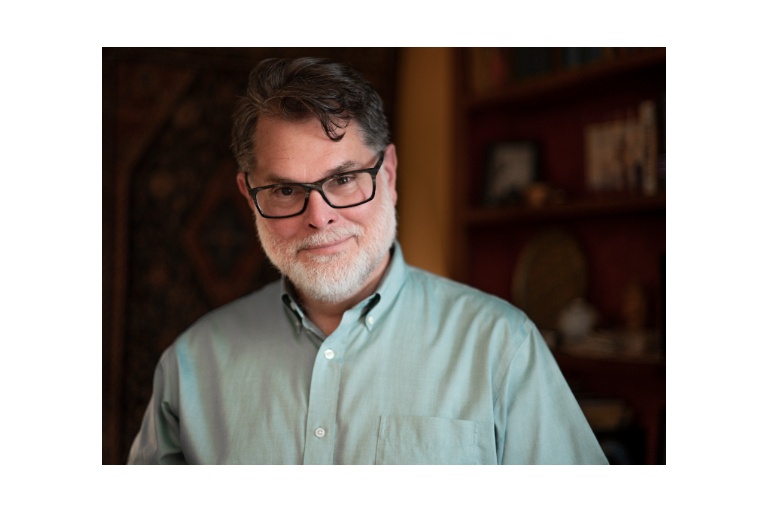
Phil Ford is associate professor of music in musicology at the Indiana University Jacobs School of Music. His work (for example in his monograph Dig: Sound and Music in Hip Culture) has dealt especially with postwar American culture and music, as well as sound and performance studies, philosophies of experience, and the intellectual history of counterculture. His current work concerns magical and contemplative styles of thought, feeling, and experience in various contexts, musical and otherwise. He cohosts an arts and philosophy podcast, Weird Studies, with philosopher J. F. Martel, and is an assistant teacher in the Open Mind Zen sangha.
Ford’s project considers the end of the world — or at least the end of human presence in it — and the artistic means by which it might be made thinkable and representable. The development of the atomic bomb first raised the spectre of human extinction in the modern mind, and, seventy-odd years later, cosmic fear has become inescapable. Ford draws on the Twin Peaks mythos to refine a notion of our collective malaise. In Twin Peaks: The Return, the Trinity bomb tears a hole in the membrane that separates an occult Otherworld from our own, and extradimensional demons pour in to feast on human pain, sorrow, and fear — a food they call garmonbozia.
Occult narratives don't work the same way as the ideas academic historians are used to handling, and they are not rationally defensible in the same way. The truth-claims of Twin Peaks’s occult narrative are not those of science, but of myth. This project explores the affordances, for contemporary intellectuals, of long-despised occult and magical modes of thought. More particularly, it suggests that they might enable us to think our way through the contemporary fears (of terrorism, or environmental collapse, of political or religious extremism, etc.) that have succeeded Cold War nuclear anxiety.
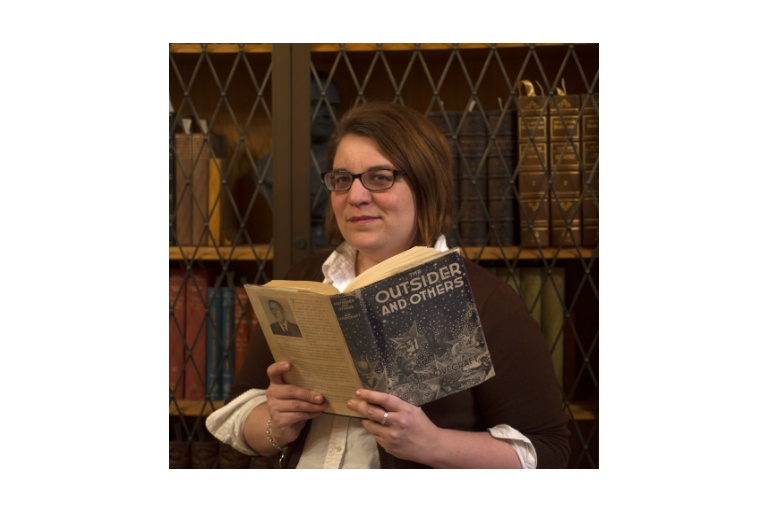
Rebecca Baumann is the Head of Curatorial Services and Curator of Modern Books at the Lilly Library, the rare book and manuscript library of Indiana University. They are also Adjunct Associate Professor in the Department of Information and Library Science at IU, teaching courses in Rare Book Librarianship, Rare Book Curatorship, and the History of the Book, 1450 to the Present. They are the curator of the 2018 exhibition Frankenstein 200: The Birth, Life and Resurrection of Mary Shelley’s Monster and author of the accompanying catalog, published by Indiana University Press. Their interest in pulp and paperback publishing has led to articles in Fine Books & Collections and Dangerous Visions and New Worlds: Radical Science Fiction (PM Press, 2021). Rebecca is also an avid collector of pulp paperbacks and is currently working on a project related to queer “smut” paperbacks of the 1950s-70s.
Project description:
Rebecca’s interest in the occult and in all things weird is woven throughout all their projects, dating back to an unfinished dissertation on the radically new forms of monstrosity which developed in the British and American weird tales of the late 19th and early 20th centuries, including the tentacled monster, the protoplasmic monster, and the living dead monster. Rebecca is currently working on building, describing, and sharing the Lilly Library’s collections related to magic of all sorts, including the recently acquired archive of stage magician Ricky Jay and the long-held archive of correspondence between occultist Aleister Crowley and book collector Montgomery Evans.

Stephen Andrews is the Interim Executive Editor of the Journal of American History (JAH) and an Adjunct Professor of History at Indiana University. He is also the editor of Process: A Blog for American History and has served as the editor of The American Historian. His work and teaching focuses on the cultural and religious history of the United States and has taught classes on religion, reform, and the occult. He is deeply engaged in public history, appearing in the media to discuss the history of conspiracy theories and working closely with the 9/11 Museum in New York City to help educators address conspiracy theories in the classroom.
His current project is Conspiracy Faith, which focuses on the history of how conspiracies theories have functioned in American culture.
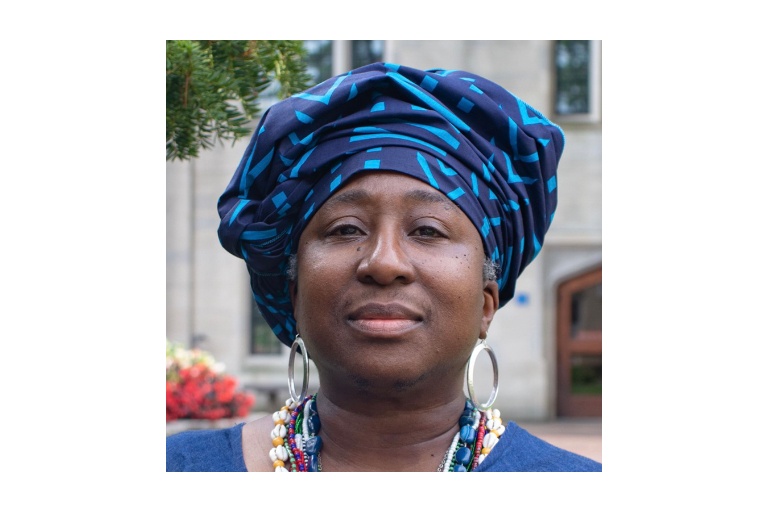
Maria E. Hamilton Abegunde, Ph.D., is a Memory Keeper, orisa devotee, healing facilitator, full-spectrum community doula, and poet. Her research and creative works are grounded in contemplative practices and African-based rituals. She respectfully approaches the Earth and human bodies as sites of memory, and always with the understanding that memory never dies, is subversive, and can be recovered to transform and heal transgenerational trauma and pain. Specific areas of interest include the Middle Passage, genocide, sexual violence, memory and embodiment, community healing, and the arts as a vehicle for community transformation.
Her recent writings/performances can be found in the journals North Meridian Review, the Massachusetts Review, Obsidian, Tupelo Quarterly, FIRE!!! (ASALH); in the books Ashe: Ritual Poetics in African Diasporic Expressivity, Theorizing Folklore from the Margins: Critical and Ethical Approaches, Trouble the Waters: Tales from the Deep Blue, Black Joy Unbound, Trigger Warnings, and SO WE CAN KNOW: Writers of Color on Pregnancy, Loss, Abortion, and Birth; and in the exhibitions Be/Coming, Keeper of My Mothers’ Dreams, and Sister Song: The Requiem. She is the author of the poetry chapbooks Wishful Thinking and Still Breathing, and the full collection What Is Now Unanswerable.
Dr. Abegunde is the ritualist and commissioned poet for the Ancestral Masquerade Series and the Sister Song exhibitions. She is a Cave Canem, Sacatar, Ragdale, and Black Earth Institute fellow, and was one of the participants in the inaugural Poets and Scholars Writing Retreat, hosted by the Rutgers University Institute for the Study of Global Racial Justice.
She is the co-director of the 2024 NEH Summer Institute, Content Warning: Engaging Trauma and Controversy Research Collections. She is a faculty member in the Department of African American and African Diaspora Studies
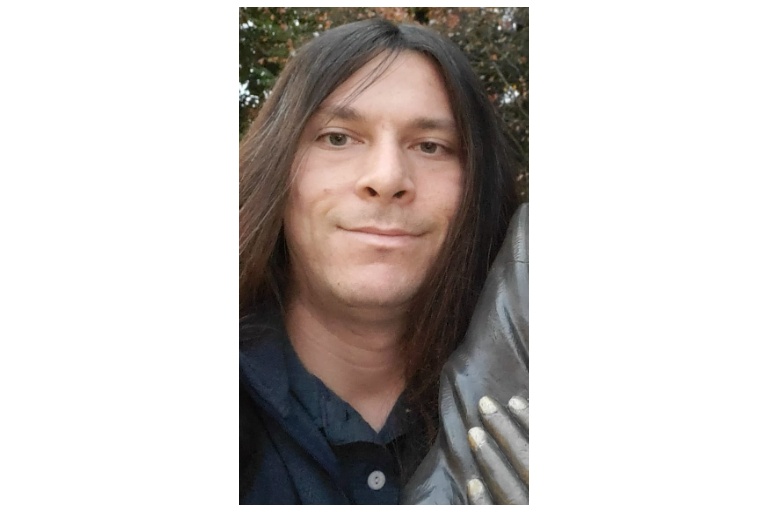
Samuel (goes by Sam) is a current PhD Candidate in English Literature at Indiana University-Bloomington, a speculative fiction writer, and a former biophysicist. His research focuses on the role of magic in science fiction and weird fiction. The recent resurgence of critical and artistic interest in the work of H.P. Lovecraft, especially when deployed by BIPOC and/or progressive writers at explicit odds with Lovecraft’s racist and reactionary politics, is the focus of his dissertation.
By reading Lovecraft’s Cthulhu Mythos stories alongside revisions of the Lovecraftian by later 20th- and 21st-century writers, his project attempts to explain Lovecraft’s enduring influence. The first reason for this persistence of the Lovecraftian is that racism itself shares many similarities with Lovecraft’s Old Ones; it is an undying and baffling force by which the distant past exerts horrific and often clandestine influence on the present. N.K. Jemisin’s Great Cities novels make this parallel most apparent by making Cthulhu’s city of R’lyeh the ally of gentrifiers and alt-right trolls in contemporary New York City.
The second reason is that Lovecraft’s work illustrates a philosophy of “asymptotic reenchantment.” Asymptotic re-enchantment is a term of Sam’s own coinage and refers to texts which begin firmly immersed in the modern episteme of science and technology but which then progressively approach the border between this episteme and systems of knowledge based on magic, religion, and/or the occult, which are often explicitly associated with BIPOC people, without permanently transitioning into these non-scientific worldviews and becoming unrealizable fantasy. As part of this work, Sam utilizes Digital Humanities methods such as topic modelling and document classification, which he views as a form of machine spirit divination. Before coming to IU, Sam received a B.A. in Biophysics from The Johns Hopkins University and an M.F.A. in Creative Writing from The University of Colorado Boulder.

Anne Delgado wrote her dissertation on Victorian spiritualism, the ghost story, and occult fiction at the turn of the century and completed her PhD at Indiana University, Bloomington. She has since published articles on spiritualist mediums, psychical researchers, and the Victorian ghost story. She is most interested in the history and production of ectoplasm, the alleged manifestation of the spirit world. This obsession has taken her to collections at the American Society of Psychical Research in NYC, the University of Cambridge, and the College of Psychic Studies in London. She is currently working on a history of the substance.
Project Description:
Anne has been interested in the occult, the paranormal, and all things that go bump in the night ever since she was kid growing up in rural Utah. She is currently working with Rebecca Baumann on an edited collection of correspondence between the occultist Aleister Crowley and Montgomery Evans, an avid book collector and aspiring magician. She has also completed the third draft of a murder mystery featuring the collaboration between a spiritualist medium and the escapologist and “medium buster,” Harry Houdini and plans to visit Kolkata, India, this spring in search of ghosts and Bengali ghost stories.
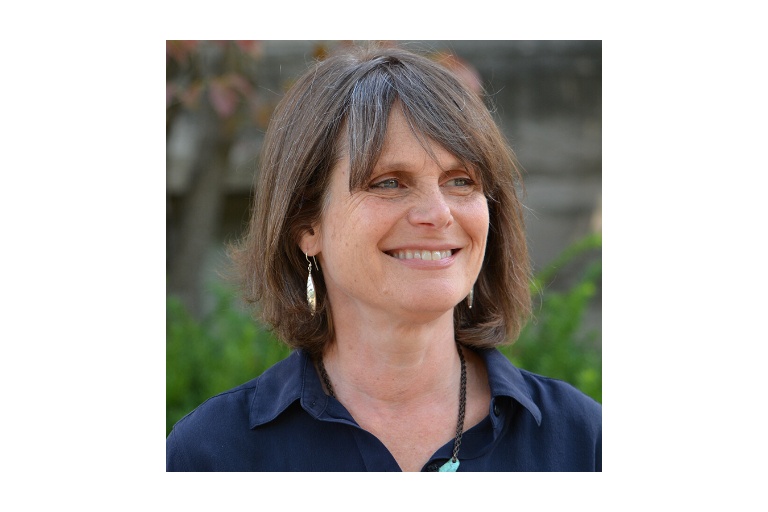
Susan Lepselter is Associate Professor of American Studies, and Adjunct Professor of Cultural Studies, Anthropology, and Folklore. She takes an interdisciplinary approach to narrative and poetics in the United States, and has published work on subjects including uncanny conspiracies, monsters, neurodivergent online communities and hoarding shows. She teaches courses on topics including dream traditions around the world, captivity narratives, and creative ethnography. Her book The Resonance of Unseen Things: Poetics, Power, Captivity and UFOs in the American Uncanny (University of Michigan Press, 2016) won the 2017 Society for Cultural Anthropology Bateson Prize. She currently is researching weird, supernatural and magical encounters between human and nonhuman animals, along with ordinary encounters between species that take place in everyday life. She will be developing this project in both writing and in a multimedia collage, exploring an emergent collective affect at a time when the viability of leaving Earth to populate other planets is an ambivalent theme in both our cultural and scientific imaginaries. The visual and written media in her new project will become an interconnected poetics that engage visual, aural, and felt dimensions of both ordinary and weird human encounters with the nonhuman earthly world.


